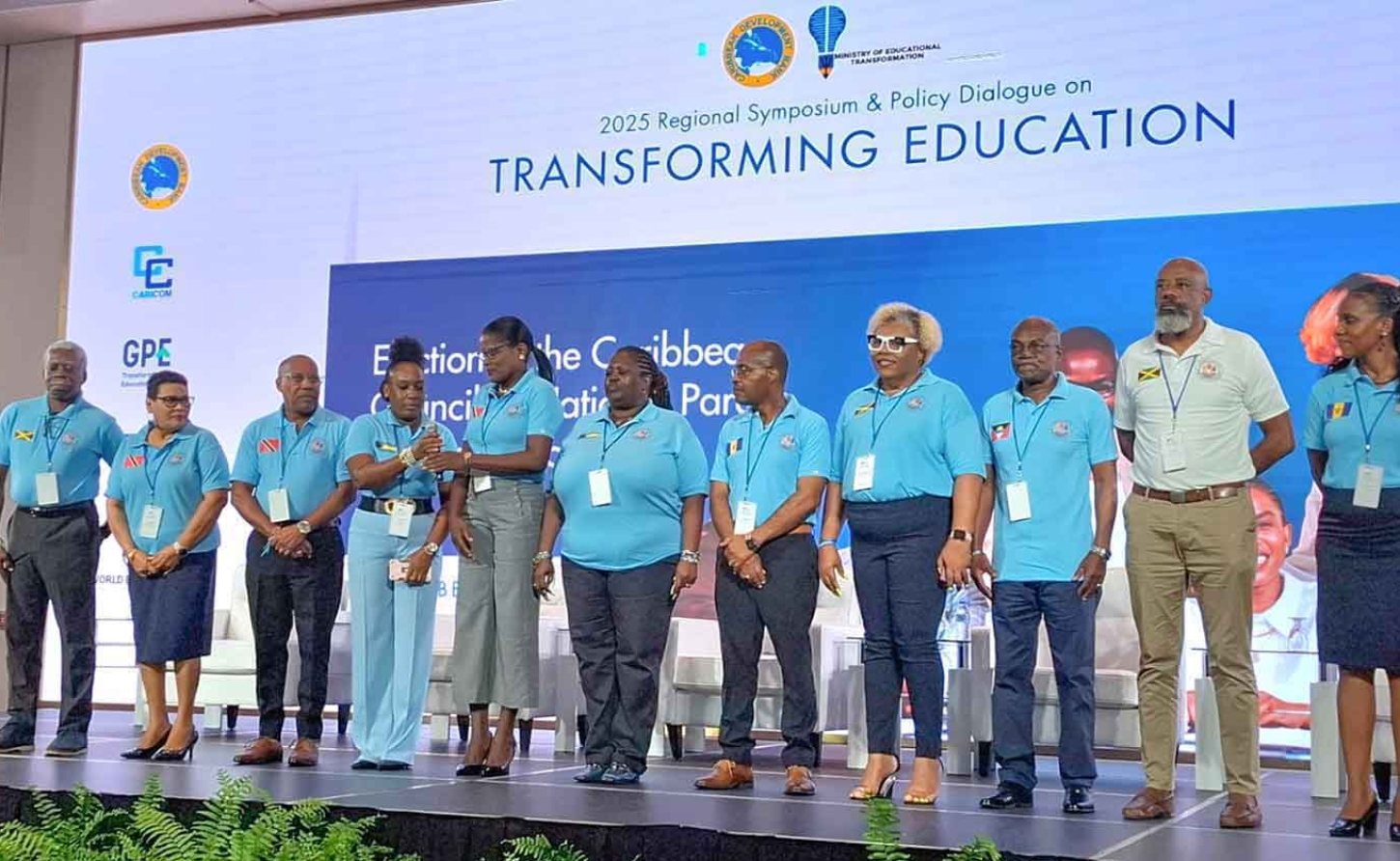BARBADOS | Caribbean Education Gets a Unified Voice: CCNPTA Formalizes Regional Leadership

Historic Barbados gathering marks a turning point as parents across 16 nations formalize their collective power in shaping the future of Caribbean education
In a moment that education advocates across the region have long anticipated, the Caribbean Council of National Parent-Teacher Associations (CCNPTA) has formally elected and endorsed its first executive team, signaling a new era of coordinated parental engagement in Caribbean education.
The momentous decision came during the 2025 Regional Symposium and Policy Dialogue on Transforming Education in Barbados, where representatives from over 16 countries gathered under the theme "Stronger Together: Empowering Parents as Partners in Caribbean Education."
The newly minted executive brings together passionate advocates from across the archipelago: Everton Hannam of Jamaica assumes the presidency, supported by a trio of vice presidents—Zena Ramatalli and Walter Stewart, both from Trinidad and Tobago, and Danavier Fisher from the Bahamas.
Keiran Glasgow of Trinidad and Tobago takes on the critical role of General Secretary, with Bety-Ann Skinner of the Bahamas as Assistant General Secretary.
The financial stewardship falls to Treasurer Shone Gibbs of Barbados and Assistant Treasurer Mitsie Harris-Dillon of Jamaica, while Alister Thomas of Antigua and Barbuda and Stewart Jacobs of Jamaica serve as trustees. Nicole Brathwaite of Barbados rounds out the team as Public Relations Officer.
A Response to Regional Educational Imperatives
The formalization of CCNPTA arrives at a critical juncture for Caribbean education. As Caribbean Development Bank President Daniel Best emphasized at the symposium's opening, the region faces stark challenges: less than 20 percent of Caribbean adults hold university degrees, and recent CSEC results show only 44 percent of candidates passing five or more subjects including Mathematics and English.
Some nations hemorrhage over 70 percent of their university graduates to migration—a brain drain that threatens the region's human capital development.
What makes CCNPTA's emergence particularly significant is its potential to transform these statistics from abstract policy concerns into actionable family-centered strategies.
Regional coordination means parents in St. Lucia can learn from successful interventions in Jamaica; Barbadian PTAs can share digital literacy approaches with counterparts in Trinidad; and Guyanese parents advocating for children with diverse needs can access resources developed across multiple territories.
From Fragmented Voices to Unified Force
For decades, national PTAs operated in relative isolation—passionate, committed, but limited in their ability to influence regional policy frameworks. Individual associations might negotiate with local education ministries, but had little leverage when it came to shaping Caribbean-wide educational standards, examination policies, or curriculum development through institutions like the Caribbean Examinations Council (CXC).
CCNPTA changes that dynamic fundamentally. As a constituted regional body with an adopted organizational charter, the council now possesses the institutional weight to engage directly with regional bodies—CXC, the Caribbean Community (CARICOM) Secretariat, and the Caribbean Development Bank itself.
The symposium that birthed CCNPTA's executive wasn't merely celebratory; it included high-level policy dialogues between PTAs and Ministers of Education, explicitly designed to align parental initiatives with national education priorities.
Minister of Educational Transformation for Barbados, Chad Blackman, captured the urgency at the symposium's opening: Caribbean children deserve education that fosters resilience, innovation, and global competence through decolonized curricula, digital literacy, stronger teacher development, and crucially, regional collaboration.
The Road Ahead
The work before CCNPTA's new executive is substantial but inspiring. Their mandate extends beyond coordination to advocacy, capacity building, and creating sustainable frameworks for parental engagement throughout the educational ecosystem.
They inherit momentum from years of groundwork laid by the national PTAs of Trinidad and Tobago, Guyana, and Jamaica, whose constitutional drafting efforts culminated in the charter adopted in Barbados.
As CDB's Dr. Martin Baptiste noted, this is about building bridges—between parents and teachers, between PTAs and policymakers, and across Caribbean territories. With CCNPTA now formally constituted and led, Caribbean parents finally have a unified regional voice.
That voice promises to echo in education ministries, examination councils, and policy dialogues for years to come, ensuring that the transformation of Caribbean education truly places families at its heart.
-30-
